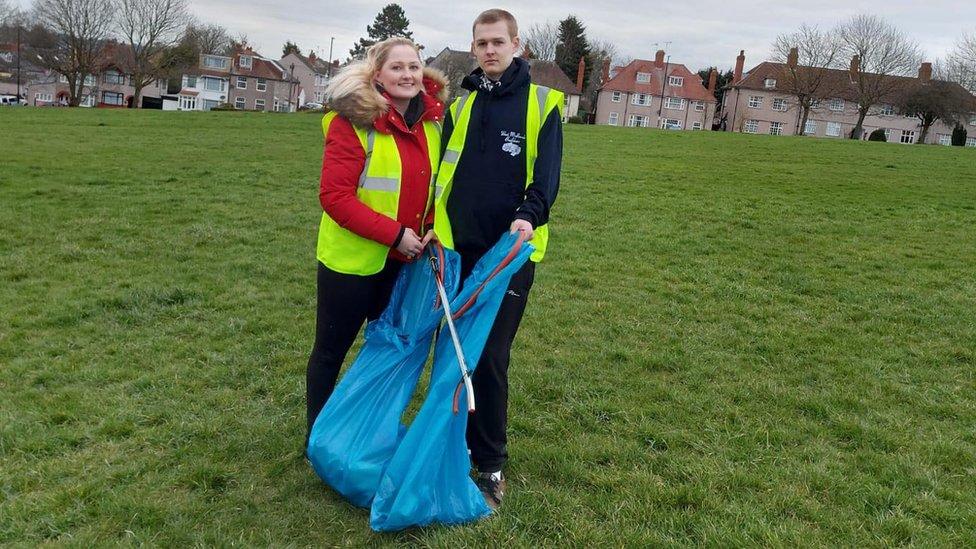Litter pickers at Lea Marston Lakes fill 200 bags of rubbish
- Published
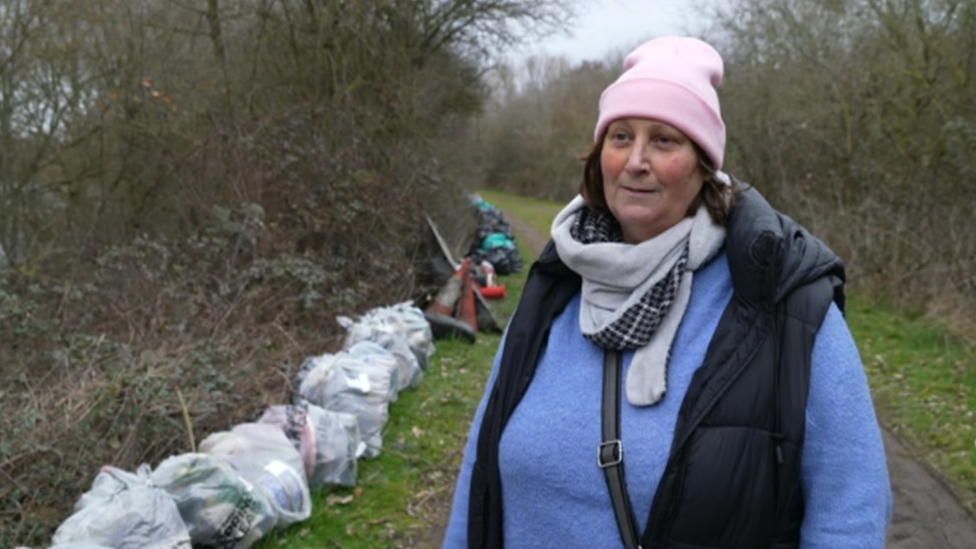
Lorraine Thompson, from Tamworth Cool Pickers, said the amount of rubbish made her "heart bleed"
Litter pickers clearing up rubbish from a series of lakes say they have filled 200 bags so far.
Warwickshire-based volunteers Tamworth Cool Pickers are collecting items at Lea Marston Lakes and one said the amount of waste had made her cry.
Plastic bottles, crisp packets and needles are among things found at the lakes, managed by the Environment Agency [EA].
A spokesperson for the EA said waste was likely to have washed downstream.
"As a result, litter can often collect at Lea Marston Lakes when high flows wash litter from [the] banks of our river systems upstream," they said.
"It then gets deposited around the lakes as water levels subside.
"We support litter pick groups such as Tamworth Cool Pickers and local councils who can educate the public in being responsible when it comes to waste disposal," the spokesperson added.
Lorraine Thompson, from Tamworth Cool Pickers, said the amount of rubbish by the lakes had made her "heart bleed".
"The first time I ever came here and saw it, I cried.
"It's the environment, isn't it. The wildlife and what it's doing... I just think, 'what are we as humans doing to the environment'?" she added.
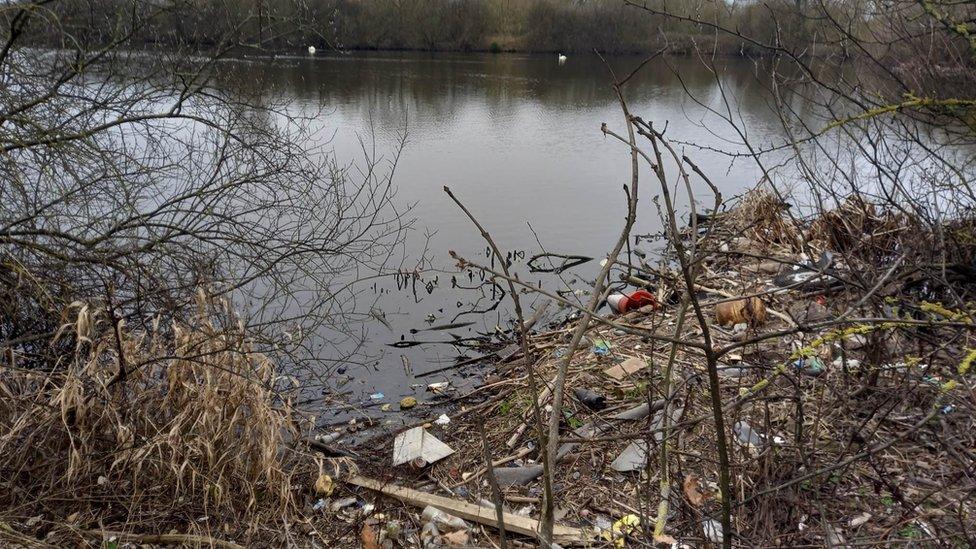
Tonnes of rubbish including plastic bottles and needles have been found at Lea Marston Lakes
Ms Thompson said she and her husband had started litter picking 18 months ago before being joined by local residents and volunteer groups such as the Lichfield Litter Legends.
She said volunteers had collected hundreds of plastic bottles, needles and coconuts and had also found industrial cylinders, garden ponds and crisp packets from the 1990s and early 2000s at the lakes.
"We think it's the River Tame, whether there's a waste yard further up the river and it's overflowing from there, I don't know, but this is not fly-tipping - this is definitely waste," she said.
She added she wanted the EA to send people out to help local residents clear the rubbish.
"We don't mind helping - we desperately need help," she said.
A spokesperson for the Department for Environment, Food and Rural Affairs said fly-tipping had affected communities across the UK but it was was making "solid" progress, with incidents down by 4%.
"But there is more to do, which is why we are awarding councils grants to tackle fly-tipping, strengthening powers to detect and prosecute waste criminals and planning to introduce rules to crack down further on offenders."

Follow BBC West Midlands on Facebook, external, Twitter, external and Instagram, external. Send your story ideas to: newsonline.westmidlands@bbc.co.uk, external
- Published8 February 2022
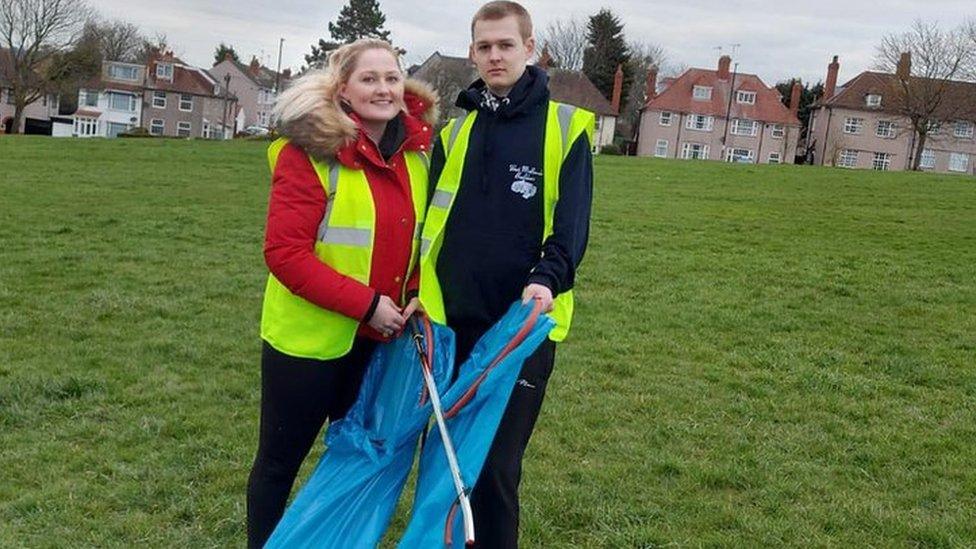
- Published11 March 2021
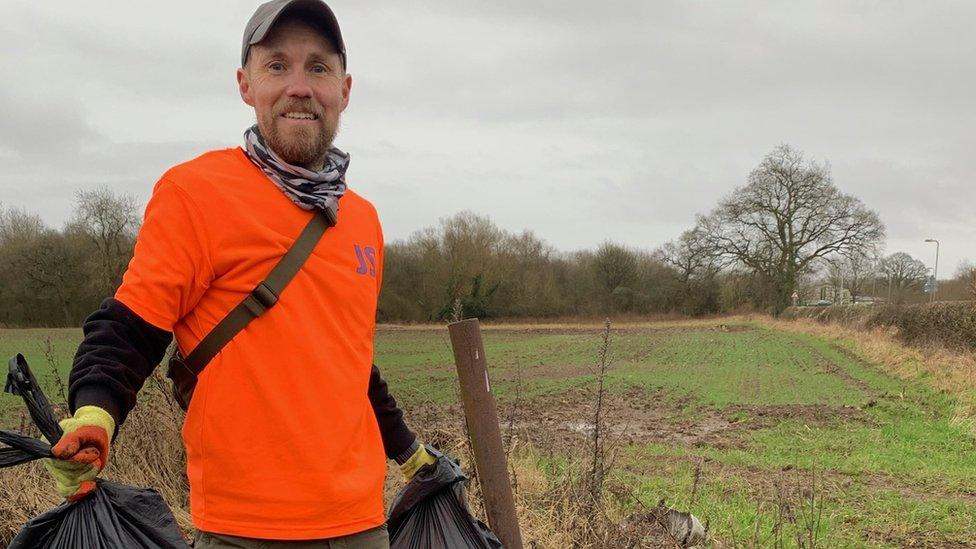
- Published2 February 2022
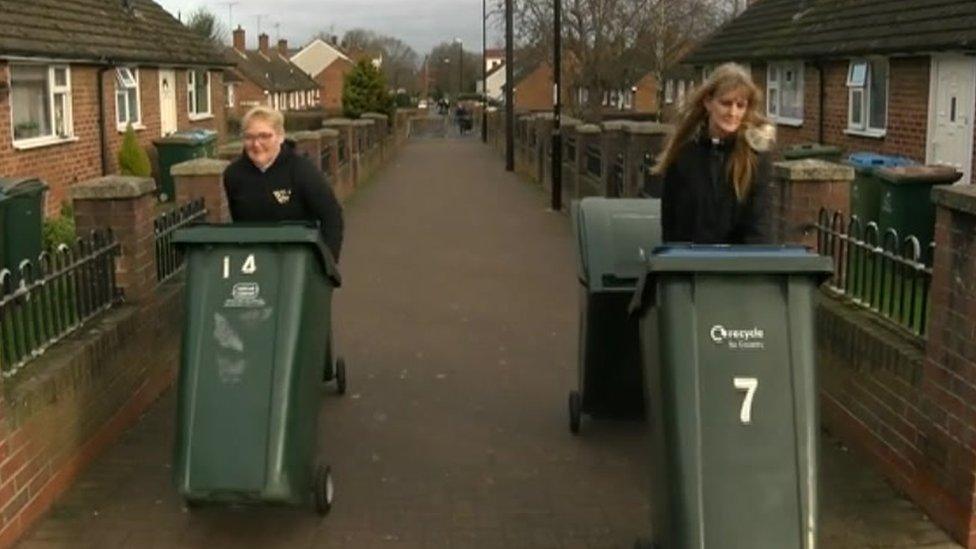
- Published7 March 2021
